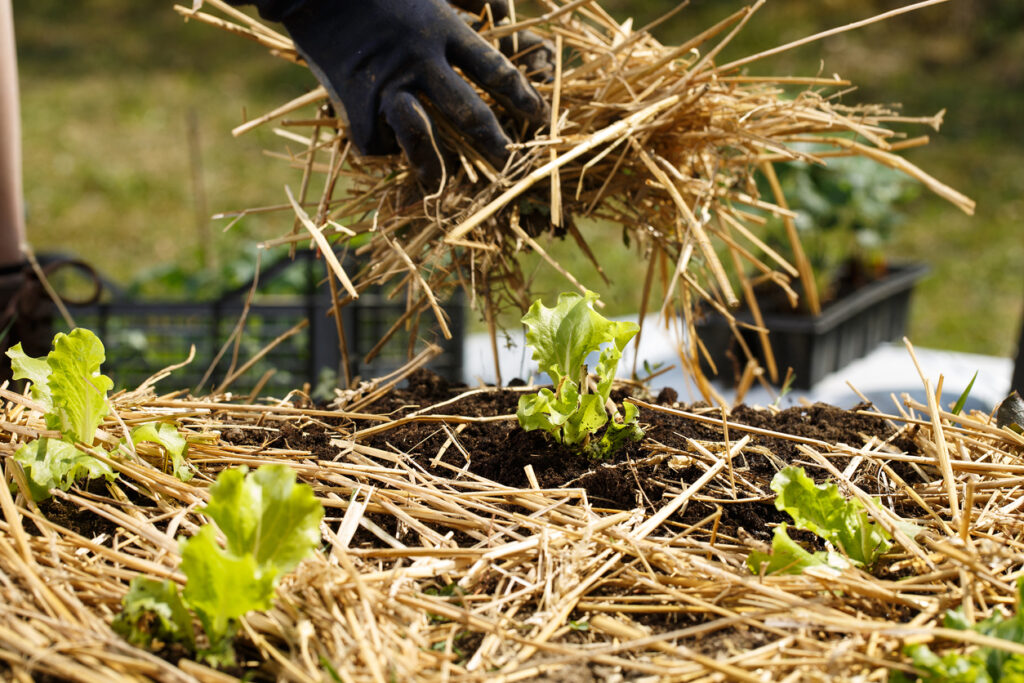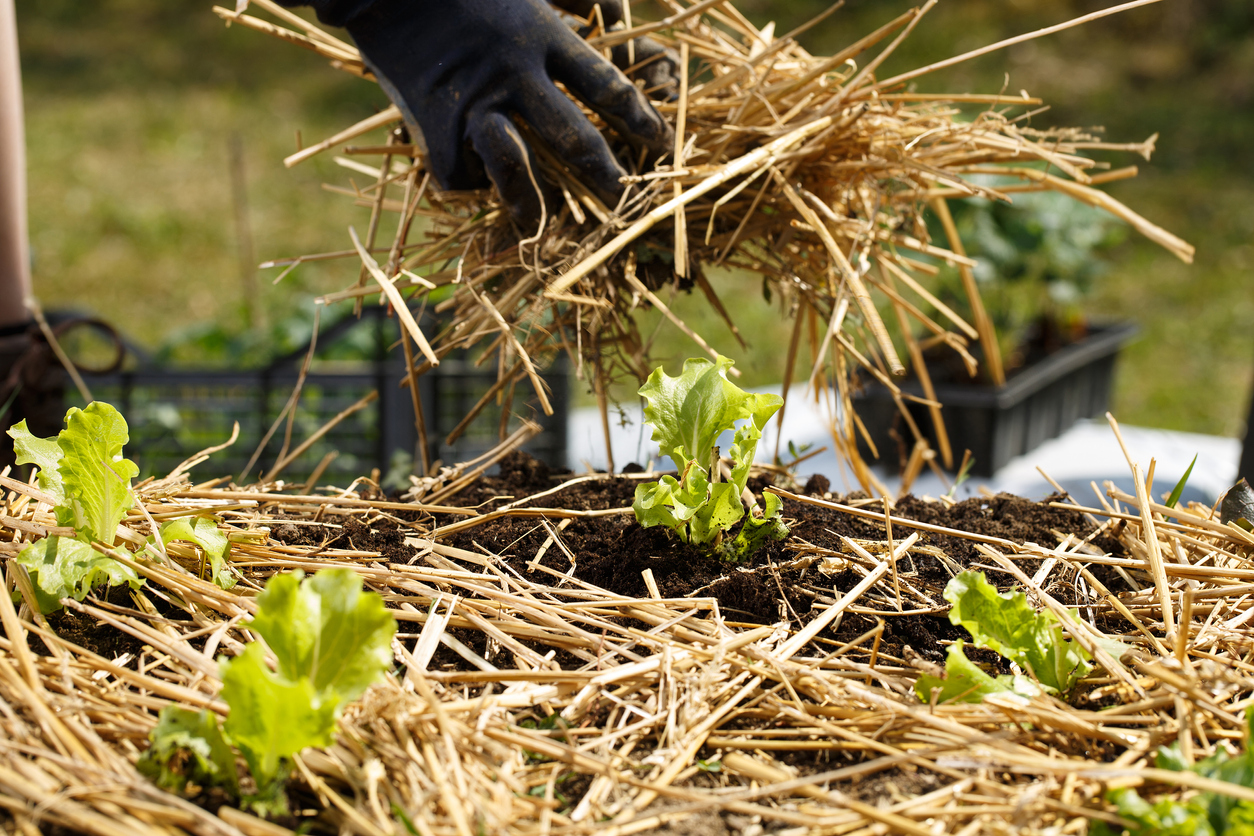
The Ultimate Guide to Organic Mulch for Your Vegetable Garden
For any gardener, the quest for healthy, thriving vegetables often leads down a path of discovery – exploring soil amendments, watering techniques, and pest control methods. Among these, the use of organic mulch stands out as a particularly effective and environmentally friendly practice. This comprehensive guide dives into the world of organic mulch for vegetable gardens, exploring its benefits, types, application, and more.
What is Organic Mulch?
Organic mulch refers to any natural material spread on the soil surface around plants. Unlike inorganic mulches like plastic or gravel, organic mulches decompose over time, enriching the soil and improving its structure. This decomposition process adds valuable nutrients, enhances water retention, and suppresses weed growth – all crucial for a successful vegetable garden.
Benefits of Using Organic Mulch in Vegetable Gardens
The advantages of using organic mulch are numerous and impactful:
- Weed Suppression: Organic mulch acts as a physical barrier, preventing sunlight from reaching weed seeds in the soil, thereby inhibiting their germination.
- Moisture Retention: It reduces evaporation from the soil surface, keeping the soil moist and reducing the need for frequent watering.
- Soil Temperature Regulation: Organic mulch insulates the soil, keeping it cooler in the summer and warmer in the winter, protecting plant roots from extreme temperature fluctuations.
- Soil Enrichment: As it decomposes, organic mulch adds organic matter to the soil, improving its structure, drainage, and fertility.
- Erosion Control: Organic mulch helps prevent soil erosion from wind and rain, protecting valuable topsoil.
- Pest and Disease Control: Certain types of organic mulch, like cedar chips, can deter certain pests and diseases.
- Aesthetics: Organic mulch provides a neat and tidy appearance to the garden, enhancing its aesthetic appeal.
Types of Organic Mulch Suitable for Vegetable Gardens
Choosing the right type of organic mulch is crucial for maximizing its benefits. Here are some popular options:
Straw
Straw is an excellent organic mulch for vegetable gardens, particularly for crops like strawberries and tomatoes. It is lightweight, readily available, and decomposes slowly, providing long-lasting benefits. Ensure you use straw and not hay, as hay contains seeds that can introduce weeds into your garden. [See also: Companion Planting for Tomatoes]
Wood Chips
Wood chips are a durable and long-lasting organic mulch option. They are best suited for pathways and around shrubs and trees rather than directly around vegetables, as they can tie up nitrogen in the soil as they decompose. Consider using composted wood chips to mitigate this effect.
Compost
Compost is a nutrient-rich organic mulch that provides excellent soil enrichment. It is a great choice for vegetable gardens, as it adds essential nutrients to the soil as it decomposes. Apply a thin layer of compost around plants to provide a slow-release fertilizer. [See also: Composting at Home]
Grass Clippings
Grass clippings are a readily available and inexpensive organic mulch option. However, use them with caution, as they can mat down and restrict airflow if applied too thickly. Allow grass clippings to dry before applying them as organic mulch to prevent this issue. Avoid using grass clippings from lawns treated with herbicides.
Leaves
Shredded leaves are an excellent organic mulch for vegetable gardens. They decompose slowly, providing long-lasting soil enrichment. Shred leaves before applying them to prevent them from matting down and restricting airflow. Use a lawnmower or leaf shredder to create shredded leaves.
Pine Needles
Pine needles are a slow-decomposing organic mulch that is particularly well-suited for acidic-loving plants like blueberries and azaleas. They also provide good weed suppression and moisture retention. Pine needles can help lower the soil pH, which can be beneficial for certain vegetables.
Coco Coir
Coco coir, a byproduct of coconut processing, is an increasingly popular organic mulch option. It has excellent water retention properties and is a sustainable alternative to peat moss. Coco coir is also relatively lightweight and easy to handle.
How to Apply Organic Mulch to Your Vegetable Garden
Proper application of organic mulch is essential for maximizing its benefits. Here’s a step-by-step guide:
- Prepare the Soil: Remove any weeds and debris from the soil surface.
- Water the Soil: Water the soil thoroughly before applying organic mulch.
- Apply the Mulch: Spread a layer of organic mulch around plants, ensuring that it doesn’t touch the stems or trunks to prevent rot.
- Maintain the Mulch: Replenish the organic mulch as needed to maintain a consistent layer.
Common Mistakes to Avoid When Using Organic Mulch
While organic mulch offers numerous benefits, it’s important to avoid common mistakes:
- Applying Too Much Mulch: Over-mulching can restrict airflow and create a breeding ground for pests and diseases.
- Using Uncomposted Materials: Using fresh grass clippings or wood chips can tie up nitrogen in the soil.
- Mulching Too Close to Plant Stems: This can lead to stem rot.
- Using Mulch that Contains Weed Seeds: This can introduce weeds into your garden.
Choosing the Right Organic Mulch for Specific Vegetables
Different vegetables benefit from different types of organic mulch. Consider these recommendations:
- Tomatoes: Straw, compost, or shredded leaves
- Peppers: Straw, compost, or pine needles
- Cucumbers: Straw or compost
- Lettuce: Straw or compost
- Blueberries: Pine needles or wood chips
Sourcing Organic Mulch
Organic mulch can be sourced from various places:
- Local Garden Centers: Garden centers typically offer a wide variety of organic mulch options.
- Home Improvement Stores: Home improvement stores also carry organic mulch.
- Online Retailers: Online retailers offer a convenient way to purchase organic mulch.
- Your Own Yard: Grass clippings, leaves, and pine needles can be used as organic mulch.
The Environmental Impact of Organic Mulch
Using organic mulch is an environmentally friendly practice. It reduces the need for synthetic fertilizers and herbicides, conserves water, and reduces waste by utilizing natural materials. By choosing organic mulch, gardeners can contribute to a more sustainable and healthy environment.
Conclusion
Organic mulch is an invaluable tool for any vegetable gardener. Its numerous benefits, from weed suppression to soil enrichment, make it an essential component of a healthy and productive garden. By understanding the different types of organic mulch, their application, and potential pitfalls, you can harness the power of nature to grow thriving vegetables while promoting a sustainable environment. Embrace the practice of using organic mulch for vegetable gardens and watch your plants flourish.

